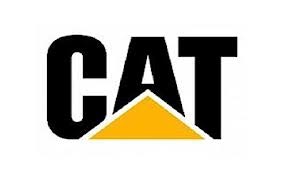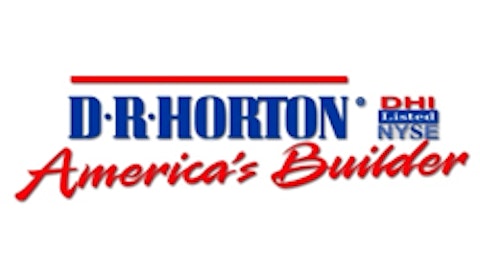What are the main differences between a diesel engine and a gasoline one? Both are internal combustion engines, but the combustion occurs in different ways.
In a gasoline engine, fuel is mixed with air, compressed by pistons, and then ignited via a spark plug. On the other hand a diesel engine compresses the air first, thereby heating it up, and then the fuel is injected. When fuel comes into contact with the hot compressed air, it ignites and powers the engine.
Both normally run on petroleum based diesel, although diesel fuel can be created using other sources. Researchers at the University of Nevada-Reno have successfully produced biodiesel from used coffee grounds.
Diesel engines are initially more expensive than their gasoline counterparts. However, they are much more durable, and can typically run for much longer without needing repair or replacement. Another difference is that gasoline engines typically have more horsepower, while diesel engines have more torque. That means that while a gasoline engine can accelerate faster, diesel engines are indisputably better suited for moving heavy loads.

One of the Dow’s cheapest stocks
As the global economy goes, so goes Caterpillar Inc. (NYSE:CAT). The stock has been fairly volatile in recent years. Bad macroeconomic news can send it down, and vice versa. But when this stock gets hammered, it presents investors with an opportunity to pick up a high quality company at a reasonable price. Caterpillar Inc. (NYSE:CAT) currently sports a P/E ratio of 11.68, well below the DJIA average of 17.7. The balance sheet looks solid with working capital of $13.71 billion and equity of $18.3 billion.
Caterpillar Inc. (NYSE:CAT) currently yields a dividend of 2.8% of its recent stock price, with a very reasonable 27% payout ratio. The dividend history is also solid — the company’s Investor Relations section of its website has dividend data going back to 1996. Since then, on a split-adjusted basis, the company has never lowered its dividend. In those 17 years dividends have grown at a CAGR of 11.1%.
When I think of diesel engines
I think of Cummins Inc. (NYSE:CMI). This company is one of the top players in the global market for diesel and natural gas engines. It should be a major beneficiary of the impending shift away from gasoline powered engines. The company has received a multitude of awards for things ranging from environmental responsibility, to its commitment to conducting business in an ethical manner.
Net FY2012 income for the company was $1.645 billion. The average figure for the 2009-2011 period was $1.1 billion. Excluding a non-recurring restructuring charge from 2001, net income grew at a CAGR of 33% between 1999-2001 and 2009-2011. The company appears to have a solid balance sheet; equity and working capital are both at healthy levels.
Additionally the company currently yields 2.2% with a 24% payout ratio. In the past 13 years, the company has never (on a split-adjusted basis) lowered its dividend. The company just recently announced it would be raising the dividend by 25%.
No dividends from this company
Shareholder’s equity is $300 million, or approximately 25% less than it was one year ago. Working capital is positive, but with all the other negative factors, that doesn’t mean much. Westport Innovations Inc. (USA) (NASDAQ:WPRT), as a leading producer of natural gas engines, might benefit immensely from the natural gas boom. But without any profitability, and shareholder’s equity dwindling fast, an investment in this company is too speculative for my tastes.
Conclusion
In the next decade or two, a significant possibility exists that our cars will transition from being powered by gasoline to other fuel sources such as electricity, natural gas, and diesel. That’s a future trend that seems likely to occur. As such, finding the companies that will benefit the most from this shift could make us a lot of money.
In the field of diesel engines, both Cummins Inc. (NYSE:CMI) and Caterpillar seem attractive right now. Caterpillar is one of the cheapest stocks on the DJIA right now, and is a perfect choice for investors with low risk tolerance.
Both companies have demonstrated that they can be profitable. Both have grown net income, Cummins Inc. (NYSE:CMI) to a much larger extent than Caterpillar Inc. (NYSE:CAT) over the past decade. Each offers a dividend yielding over 2% that hasn’t been lowered in a long time, with payout ratios that are below 30% of net income.
Cummins Inc. (NYSE:CMI) doesn’t have a track record that stretches as far back as Caterpillar Inc. (NYSE:CAT). But if you invested $1,000 in both of these companies and left it there for 30 years, I’d wager you’d make more money with Cummins Inc. (NYSE:CMI). Its net income has grown at a stellar rate, and that trend doesn’t look like it will stop anytime soon.
Fool blogger Ryan Palmer has no position in any of the stocks mentioned. The Motley Fool recommends shares of Cummins, and Westport Innovations. The Motley Fool owns shares of Cummins and Westport Innovations. Ryan is a member of The Motley Fool Blog Network — entries represent the personal opinion of the blogger and are not formally edited.
The article Companies for a Gasoline-Free World originally appeared on Fool.com is written by Ryan Palmer.
Copyright © 1995 – 2013 The Motley Fool, LLC. All rights reserved. The Motley Fool has a disclosure policy.




